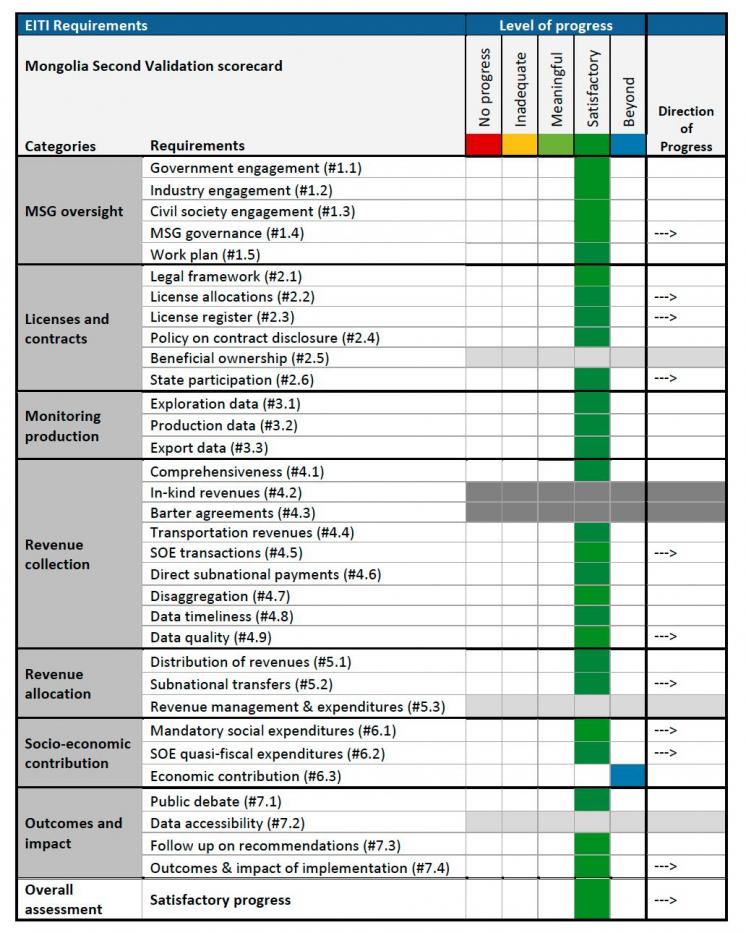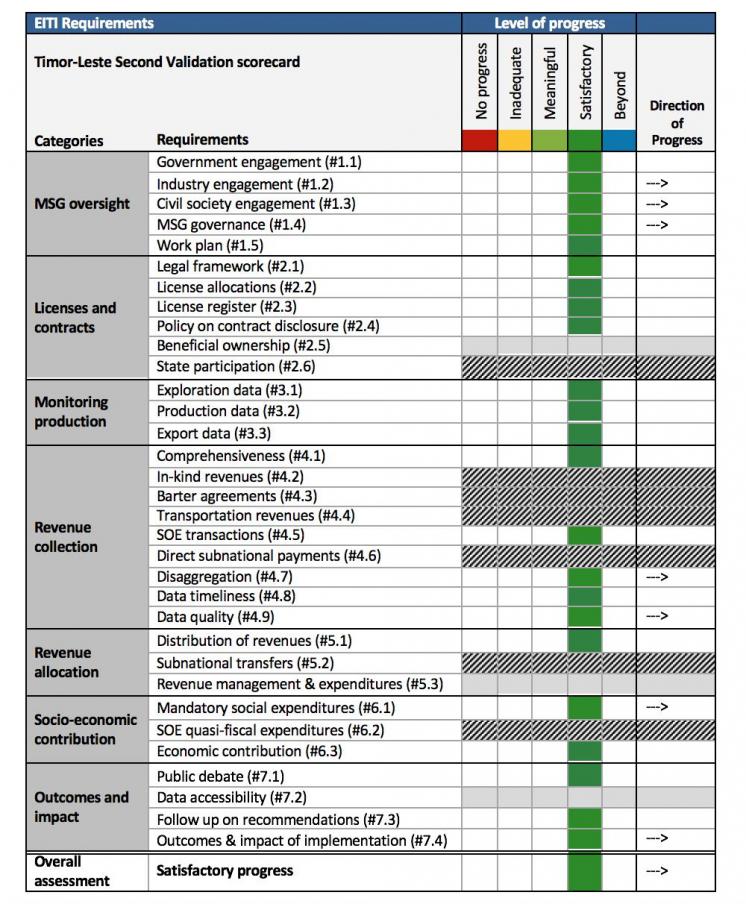
Day 2 of EITI Board meeting - Outcomes of Validation
Timor-Leste today joined Mongolia and the Philippines as the first countries having made satisfactory progress against the Standard. The Board also found Albania, Burkina Faso, and Kazakhstan to have made meaningful progress against the EITI Standard.
Two more Asian success stories
Mongolia and Timor-Leste were the first two countries to undergo a second Validation, 18 months after their first. The review of the implementation of corrective actions showed that both countries had achieved satisfactory progress on all requirements of the Standard. The Board praised Mongolia’s efforts to ensure accessible, regular disclosure of information on the sector to its citizens and the use of the EITI to shine a light on challenges in licensing and reporting of SOEs.
Timor-Leste improved company and civil society’s engagement, while EITI reporting was disaggregated at project-level, included subcontractors and reviewed the sustainability of the Petroleum Fund. In both countries, efforts to move towards routine disclosures in government and company systems were highlighted, such as EITI Mongolia’s dedicated data collection system and open data portal. As these results show, not only does Validation represent a useful tool in providing countries with concrete recommendations to make substantial progress over the course of a year and a half, but it also highlights innovations in transparency.

Mongolia’s second Validation scorecard shows progress on ten requirements.

Timor-Leste’s second Validation scorecard shows progress on seven requirements.
Meaningful progress in Albania, Burkina Faso and Kazakhstan
The Board commended the progress made in using the EITI to enhance transparency and accountability at the national and local levels in Albania, Burkina Faso and Kazakhstan. The outcome of Validation highlighted how EITI reporting in Albania, which also includes the hydro-power sector, allowed for the gradual clearing of arrears in transfers to local governments. In discussing the case of Burkina Faso, the Board underlined the role of the EITI in improving the redistribution of revenues to local communities, as well as the remarkable engagement of civil society organisations in leading EITI implementation at the subnational level and promoting national debate. Progress against the Standard was also assessed as meaningful in Kazakhstan, which has 18 months to implement corrective actions, such as on reporting quasi-fiscal expenditures undertaken by SOEs. The Board noted that Kazakhstan went beyond the Standard on seven requirements and has taken impressive steps towards mainstreaming reporting.
Lessons learned from Validation
The Board concluded its session on Validation with a discussion on lessons learned from the first 21 Validations that took place in 2016 and 2017. Board members noted that over 70% of requirements had been assessed as meaningful progress or above across the 21 cases. They highlighted that results show that EITI implementation constitutes a major driver of reforms in the extractive sector (read the EITI 2018 Progress Report for more impact stories). Several Board members agreed that Validations should focus more prominently on the impact of the EITI in improving governance in the sector. Further discussions will allow the Board to determine ways in which Validation and monitoring of routine disclosures in government and company systems can be more systematically and formally linked in the future.
Related content





